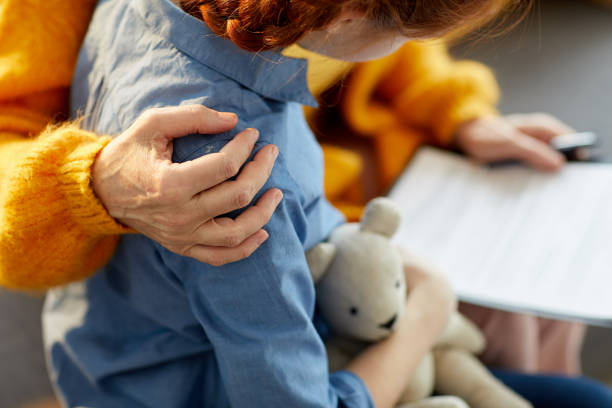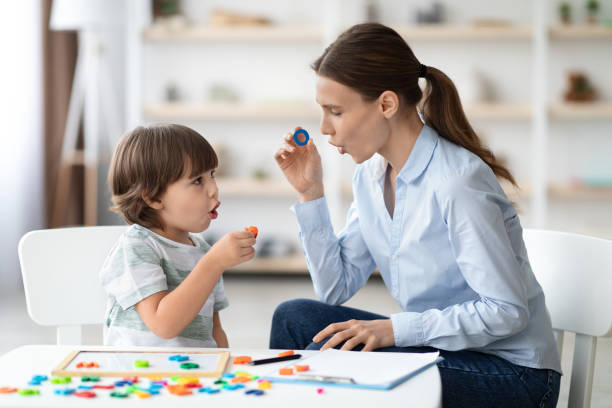Newsletter
Subscribe to stay updated on our latest news, upcoming workshops, training and special offers

Counselling has long been associated with helping people in crisis, but it's not just for individuals facing significant challenges. Children and teenagers can also benefit from counselling, even if they're not struggling with a specific issue. Counselling can help children and teens learn important skills to navigate life's challenges and build emotional resilience. Unfortunately, there's still a stigma attached to counselling, with some parents and caregivers hesitant to seek help for their children. However, normalizing counselling as a proactive measure can help more children and teens reap its benefits.
The Benefits of Counselling for Children and Teens
1. Building Self-Esteem and Confidence
Counselling can help children and teens build a positive self-image and improve their self-esteem. Through counselling, they can learn to identify and challenge negative self-talk, understand their strengths and weaknesses, and develop a more realistic and positive self-image. By building self-esteem and confidence, children and teens can feel more secure in themselves and their abilities, which can help them navigate life's challenges more effectively.
2. Improving Communication and Problem-Solving Skills
Counselling can also help children and teens improve their communication and problem-solving skills. By working with a trained counsellor, they can learn to express themselves more effectively, listen actively, and develop healthy communication habits. Additionally, counselling can help children and teens develop problem-solving skills by teaching them how to identify problems, evaluate potential solutions, and make informed decisions. These skills can help children and teens build stronger relationships, communicate more effectively with peers and adults, and develop a more positive outlook on life.

3. Developing Emotional Intelligence
Finally, counselling can help children and teens develop emotional intelligence, which is the ability to understand and manage emotions effectively. Through counselling, children and teens can learn to identify and express their emotions in healthy ways, develop empathy for others, and build emotional regulation skills. Developing emotional intelligence can help children and teens better manage stress, reduce anxiety and depression, and improve their overall mental health. It can also help them build stronger relationships and communicate more effectively with others, both now and in the future.
4. Addressing Behavioral Issues
Counselling can also be helpful for children and teens who are struggling with behavioral issues. Through counselling, they can learn to identify the root causes of their behaviors, develop strategies for managing their impulses, and build healthy habits. Additionally, counselling can help children and teens develop social skills and improve their relationships with peers and adults. By addressing behavioral issues early on, children and teens can develop the skills and habits needed to succeed in school and beyond.
5. Supporting Academic Success
Finally, counselling can help children and teens achieve academic success. By addressing emotional and behavioral challenges, counselling can help children and teens feel more confident in their abilities and more engaged in their learning. Additionally, counselling can provide strategies for managing stress, developing healthy study habits, and setting goals. By supporting academic success, counselling can help children and teens build a foundation for a successful future.
Counselling as a Preventative Measure
While counselling is often associated with crisis intervention, it can also serve as a preventative measure for children and teens. By seeking counselling early on, children and teens can develop the skills and habits needed to navigate life's challenges and build emotional resilience. Additionally, counselling can provide a safe and supportive environment for children and teens to explore their thoughts and feelings, develop healthy coping mechanisms, and build a sense of control over their lives.

One of the benefits of counselling as a preventative measure is that it can help children and teens identify and address issues before they become more significant problems. For example, a child who is struggling with anxiety may benefit from counselling early on to develop coping mechanisms and build emotional resilience. By addressing these issues early on, the child is less likely to experience significant mental health issues later in life.
Another benefit of counselling as a preventative measure is that it can help children and teens develop the skills and habits needed to succeed in school and beyond. By addressing emotional and behavioral challenges, counselling can help children and teens feel more confident in their abilities and more engaged in their learning. Additionally, counselling can provide strategies for managing stress, developing healthy study habits, and setting goals. By supporting academic success, counselling can help children and teens build a foundation for a successful future.
Normalizing Counselling for Children and Teens
Despite the numerous benefits of counselling for children and teens, there is still a stigma surrounding mental health treatment. Many children and teens may feel ashamed or embarrassed about seeking counselling, which can prevent them from getting the help they need. Normalizing counselling can help break down this stigma and encourage children and teens to seek the support they need.
One way to normalize counselling for children and teens is to start conversations about mental health openly and honestly. Parents, educators, and other adults can model healthy attitudes toward mental health by talking openly about their own experiences and encouraging children and teens to do the same. Normalizing mental health conversations can help children and teens feel more comfortable seeking support when they need it.
Another way to normalize counselling is to make it easily accessible for children and teens. Schools and community centers can offer counselling services on-site or provide referrals to mental health professionals in the area. By making counselling accessible and available, children and teens are more likely to seek the support they need.
Finally, normalizing counselling means treating it as a routine part of healthcare. Just as children and teens receive routine physical checkups, they should receive routine mental health checkups as well. By incorporating mental health screenings into routine healthcare, parents and healthcare providers can identify potential issues early on and provide support as needed.
Note:
Hopscotch Child Therapy is a child and family guidance centre with a mission to improve the standard and accessibility of early intervention and mental healthcare services for children and families. We constantly strive to provide high-quality, effective, evidence-based mental health and therapeutic services. To assist your kid in realizing his or her full potential, we have a team of highly qualified therapists with years of expertise. Visit your website right away to make an appointment!
March 26, 2023

August 24, 2022

December 17, 2024

September 30, 2020